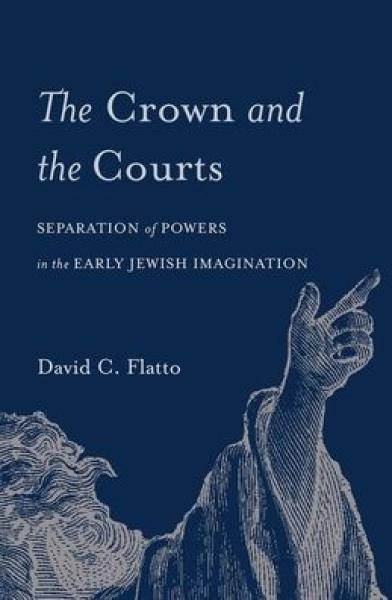Description
A scholar of law and religion uncovers a surprising origin story behind the idea of the separation of powers.
The separation of powers is a bedrock of modern constitutionalism, but striking antecedents were developed centuries earlier, by Jewish scholars and rabbis of antiquity. Attending carefully to their seminal works and the historical milieu, David Flatto shows how a foundation of democratic rule was contemplated and justified long before liberal democracy was born.
During the formative Second Temple and early rabbinic eras (the fourth century BCE to the third century CE), Jewish thinkers had to confront the nature of legal authority from the standpoint of the disempowered. Jews struggled against the idea that a legal authority stemming from God could reside in the hands of an imperious ruler (even a hypothetical Judaic monarch). Instead scholars and rabbis argued that such authority lay with independent courts and the law itself. Over time, they proposed various permutations of this ideal. Many of these envisioned distinct juridical and political powers, with a supreme law demarcating the respective jurisdictions of each sphere. Flatto explores key Second Temple and rabbinic writings--the Qumran scrolls; the philosophy and history of Philo and Josephus; the Mishnah, Tosefta, Midrash, and Talmud--to uncover these transformative notions of governance.
The Crown and the Courts argues that by proclaiming the supremacy of law in the absence of power, postbiblical thinkers emphasized the centrality of law in the people's covenant with God, helping to revitalize Jewish life and establish allegiance to legal order. These scholars proved not only creative but also prescient. Their profound ideas about the autonomy of law reverberate to this day.
The idea of the separation of powers, a bedrock of modern constitutionalism, has a deeper history. David Flatto uncovers striking antecedents in the writings of Jewish scholars and rabbis of antiquity. Under foreign rule, they constructed a vision of earthly separation of powers that made law and the courts, not the crown, supreme.
David C. Flatto, Professor of Law and of Jewish Philosophy at the Hebrew University of Jerusalem, is a scholar of Jewish law and philosophy as well as comparative constitutional law and jurisprudence.
The Crown and the Courts offers us a learned and cogent analysis of the ways in which biblical and post-biblical Jewish sources sought to establish the independence of law from various forms of political authority. Flatto's book is an important addition to the growing literature on rabbinic legal and political ideas.--Eric Nelson, author of The Theology of Liberalism
Should justice be administered independently of political authority? Through detailed consideration of a wide range of ancient Jewish texts, David Flatto adds a necessary and relevant new dimension to current thinking about the separation of powers, the independence of the judiciary, and the rule of law.--Timothy D. Lytton, author of Kosher: Private Regulation in the Age of Industrial Food
Was Josephus doing constitutional theory when he claimed that ancient Israel was a unique, theocratic polity, ruled by God and his laws, not men? This rich and provocative book deploys skillful close readings to argue that Josephus, the rabbis, and other important post-biblical Jewish thinkers made distinctive contributions to constitutional thought, developing an original account of separated powers. Flatto's book should be read as a prequel to Eric Nelson's scholarship showing how early modern Western political thought received rabbinic ideas.--Noah Feldman, author of Arab Winter: A Tragedy
Product Details
- Harvard Brand
- Nov 10, 2020 Pub Date:
- 0674737105 ISBN-10:
- 9780674737105 ISBN-13:
- 384 Pages
- 9.3 in * 6.4 in * 1.3 in Dimensions:
- 1 lb Weight:




